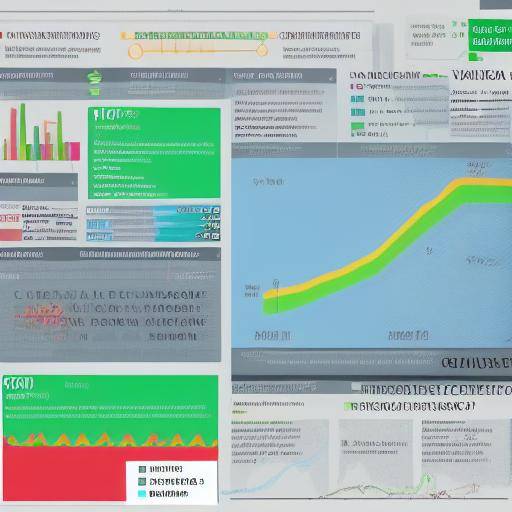
In the pursuit of personal and professional realization, it is essential to establish goals and objectives. However, it is important to understand the difference between short-term objectives and long-term objectives, as well as their importance in objective planning. In this article we will explore these differences in detail, as well as their applications, benefits and challenges. In addition, we will analyse current and future trends in objective planning to provide a comprehensive view of their importance in different aspects of life.
Introduction
Short- and long-term objectives are fundamental in the planning of objectives, both at the personal and professional levels. The establishment of these objectives can have a significant impact on the achievement of aspirations and on personal and professional growth. In this article we will explore in depth the differences between short- and long-term objectives and their influence on objective planning.
History and background
The first references to objective planning go back to ancient civilizations, where the importance of setting goals and objectives for individual and collective success was recognized. Throughout history, different philosophers, leaders and thinkers have provided significant ideas about the importance of short- and long-term planning.
Philosophy and Traditional Approach
For centuries, society has valued discipline, perseverance and the idea of achieving long-term goals. The traditional approach has promoted the idea that constancy and dedication are fundamental pillars for success, inspiring generations to work on long-term goals.
Evolution of Meta Planning
With the advancement of psychology and personal development, the understanding of the differences between short- and long-term goals has expanded. The complexity of the contemporary world has generated the need to adapt the planning of the goals to the changing demands, which has led to a greater assessment of the short-term objectives in achieving the achievements.
Reflection in Modern Culture
Currently, goal planning is a topic of great relevance in areas such as business management, personal coaching, motivational psychology and skills development. The integration of technology and entrepreneurship has led to a new evaluation of planning strategies, recognizing the importance of adapting to a changing environment.
Deep analysis
Short-term goals provide an opportunity to focus on immediate and tangible achievements, which can enhance motivation and commitment. Moreover, long-term objectives provide a long-term vision, facilitating strategic planning and development of a sense of purpose and direction. Both approaches have specific advantages and challenges that need to be considered to establish important objectives.
Comprehensive review
Effective planning of objectives requires a deep understanding of the benefits and challenges associated with short- and long-term goals. By carefully analyzing the potential impacts of these goals in different contexts, it is possible to develop strategies that maximize benefits and minimize obstacles.
Comparative analysis
Compare short- and long-term goals reveals the fundamental differences in the approach and strategy of achieving objectives. The identification of these distinctions offers the opportunity to effectively integrate both approaches, optimizing the process of setting and achieving objectives.
Accessible practical advice and advice
In setting objectives, it is essential to consider the feasibility, flexibility and importance of adapting to changing circumstances. The practical council can be of great help to understand how to successfully address goal planning, balancing short- and long-term goals to maximize growth and achievement potential.
Industry perspectives and expert reviews
Experts ' perspectives provide valuable information on new trends in objective planning. The opinions of industry leaders offer an informed understanding of best practices and effective strategies for achieving short- and long-term goals.
Case Studies and Applications in Real Life
Case studies provide concrete examples of how short- and long-term goals influence various aspects of life. Analyzing applications in real contexts offers a practical understanding of the challenges and achievements related to different objective planning approaches.
Future trends and predictions
In reviewing new trends, it is possible to foresee how future planning goals will evolve. The identification of omens and projections provides a solid basis for adapting objective planning strategies to changing environments.
Conclusion
In short, the difference between short- and long-term goals is critical to understanding the diversity of approaches in objective planning. Balancing both types of goals can optimize performance and personal and professional achievements. Recognizing the importance of establishing important short- and long-term goals, it is possible to design effective strategies that promote growth and success.
Frequently asked questions
1. What is the key difference between short- and long-term goals?
The main difference lies in the time horizon; short-term objectives focus on immediate achievements, while long-term objectives are directed towards achieving long-term goals.
2. How can I set short- and long-term goals effectively?
It is essential to define clear objectives, follow progress and periodically review the objectives to adapt to changes and challenges.
3. What benefits does it offer to combine short- and long-term goals?
The balanced combination of short- and long-term goals allows maximizing motivation, strategic planning and adaptability to changing circumstances.
4. What are the common challenges in setting short- and long-term goals?
Challenges may include time-efficient management, overcoming immediate obstacles and harmonizing long-term personal and professional goals.
5. How can I measure progress towards my short- and long-term goals?
The periodic evaluation of performance and the achievement of a key milestone are effective approaches to measuring and adjusting progress towards the established goals.
6. How do short- and long-term goals influence personal and professional well-being?
The balanced combination of short- and long-term goals can boost personal realization, professional growth and overall satisfaction with life.
In conclusion, understanding the difference between short- and long-term goals is essential for effective planning and achievement of important objectives. In addressing these differences with an informed and balanced approach, it is possible to maximize the impact of objectives on personal and professional life.
Remember, setting goals is the first step in converting the ordinary into the extraordinary. Dare to dream big and plan wisely!








